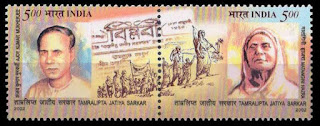On 27 May 1933, The Walt Disney Company released the cartoon Three Little Pigs, with its hit song "Who's Afraid of the Big Bad Wolf?"
The Walt Disney Company, also known as Walt Disney is an American diversified multinational mass media and entertainment conglomerate headquartered at the Walt Disney Studios in Burbank, California.
Three Little Pigs is an animated short film released on 27 May 1933 by United Artists, produced by Walt Disney and directed by Burt Gillett. Based on a fable of the same name, the Silly Symphony won the 1934 Academy Award for Best Animated Short Film of 1933. In 1994, it was voted #11 of the 50 Greatest Cartoons of all time by members of the animation field. In 2007, Three Little Pigs was selected for preservation in the United States National Film Registry by the Library of Congress as being "culturally, historically, or aesthetically significant".









